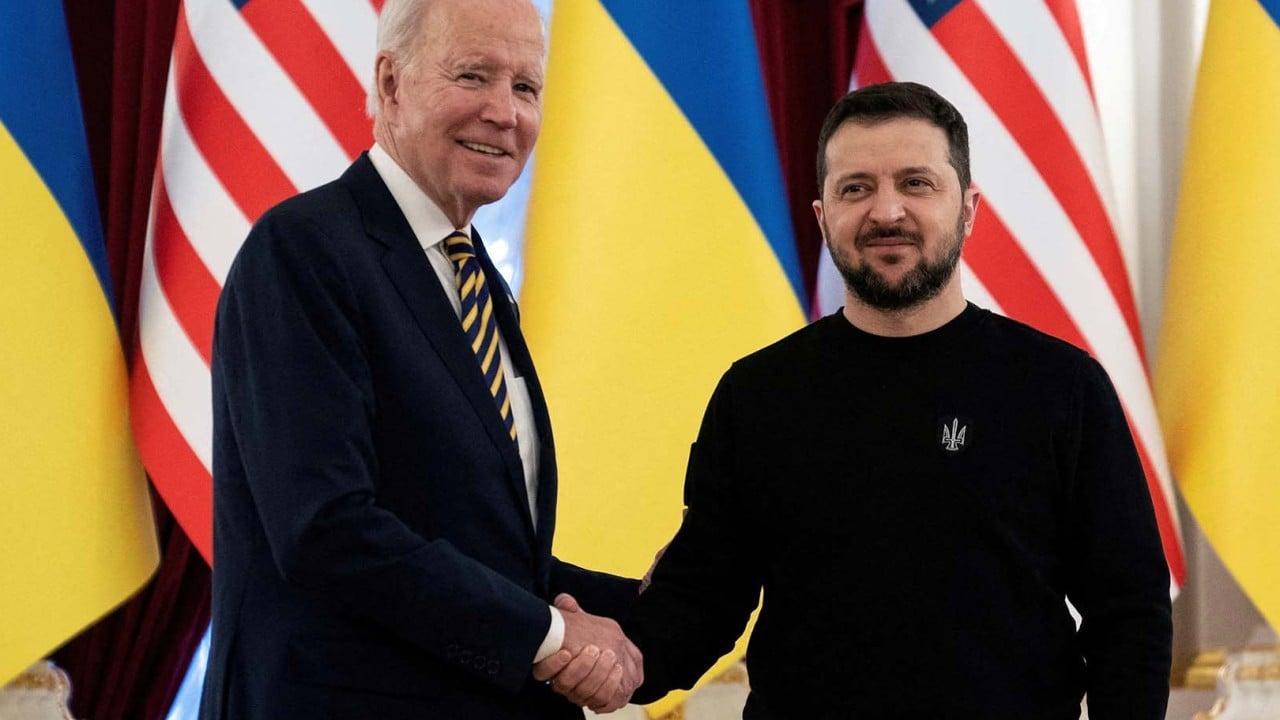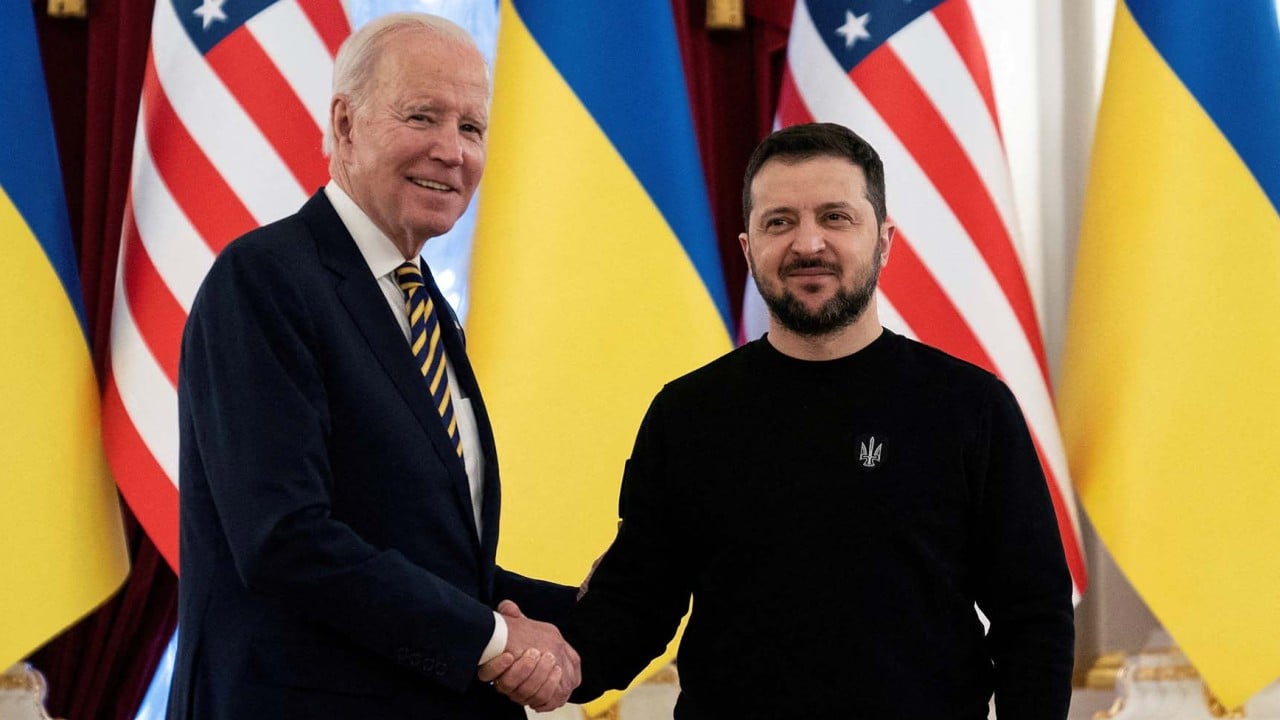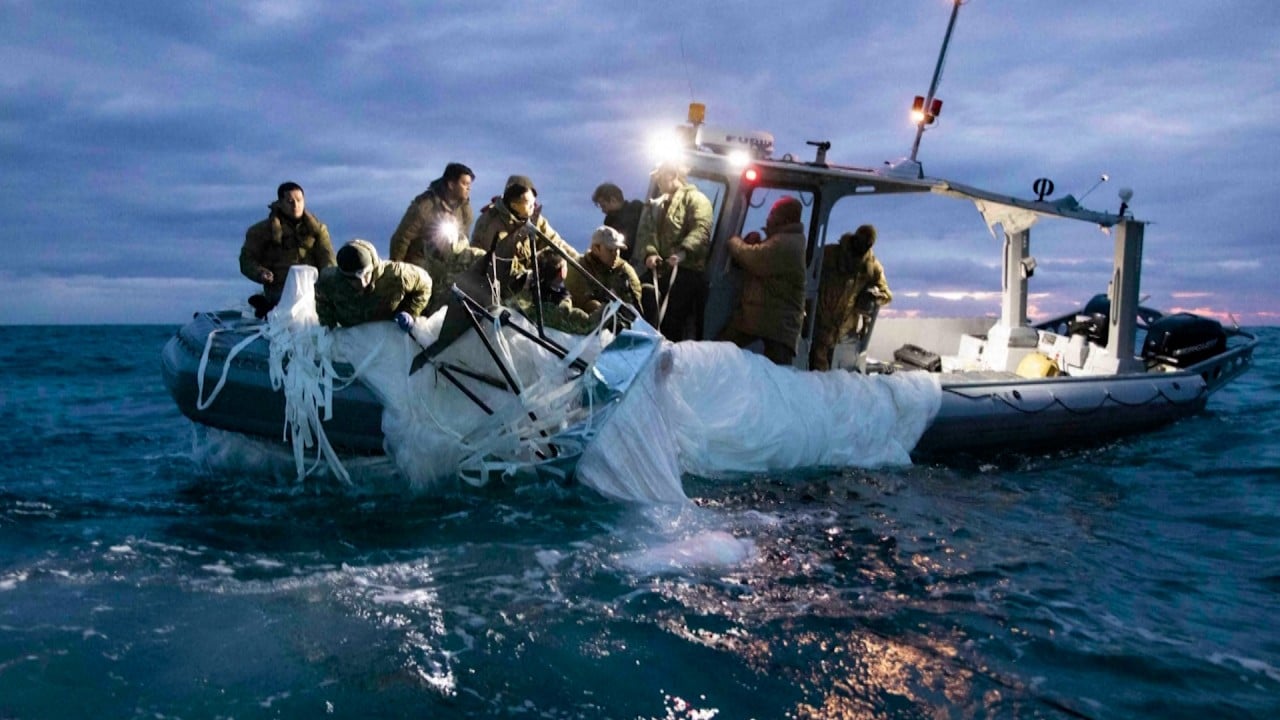
China’s top diplomat, Wang Yi, is expected to arrive in Moscow on Tuesday, his last stop on a nine-day European tour. The visit could include a meeting with Russian President Vladimir Putin, according to Kremlin spokesman Dmitry Peskov.
On Monday, European Union foreign policy chief Josep Borrell said he had told Wang in Munich over the weekend that China would be crossing a “red line” for Europe if it supplied arms to Moscow.
Beijing has denied the accusation and said it was the US, not China, that had been supplying weapons to the battlefield in Ukraine.
Biden pledged a new military aid package for Ukraine worth US$500 million. “And I will share that later this week, we will announce additional sanctions against elites and companies that are trying to evade or backfill Russia’s war machine,” he said, according to a White House statement.
At Tuesday’s forum, Qin also launched a concept paper on Beijing’s Global Security Initiative – a plan first announced by President Xi Jinping about 10 months ago that is seen as part of Beijing’s efforts to increase its influence in global governance and security.
In the paper, Beijing reiterates its call for countries to strengthen strategic dialogue to improve mutual trust and manage differences.
“China supports a political solution to hotspot issues such as the Ukraine crisis through dialogue and negotiation,” the paper says.
It points to dialogue as the “efficient way” to resolve disputes and says world powers should take responsibility “to persuade and facilitate peace talks and mediation in accordance with the needs and wishes of the country concerned”.
“The abuse of unilateral sanctions and ‘long-arm jurisdiction’ will not solve the problem, but will create more difficulties and complications,” the paper says.
It states that all countries are equal under the Global Security Initiative, so there should be no interference in their domestic politics, and sovereignty and dignity must be respected.
The paper also calls for “legitimate and reasonable security concerns” of any state to be considered – a veiled reference to Putin using Nato’s eastward expansion to justify a full-scale invasion of Ukraine.
“The legitimate and reasonable security concerns of any country should be seriously and properly addressed, and should not be ignored and systematically violated for a long time,” it says.
“Any country should take into account the legitimate security concerns of other countries in pursuing its own security.”
Beijing said last week it would soon release a position paper on the Ukraine war, without giving further details.
The security initiative document comes amid worsening ties between China and the United States after the US shot down an alleged Chinese spy balloon early this month.
In the paper, Beijing calls on countries to “resolutely uphold the consensus that ‘nuclear war cannot be won or fought’”.
It also says nations should strengthen communications and practical cooperation to resolve maritime disputes and work together to fight against pirates to protect shipping lanes.
And it urges countries to cooperate on biosecurity risk management, and to push forward a complete prohibition on mass destruction weapons and boost non-proliferation export controls, biosecurity and chemical weapons protection.




